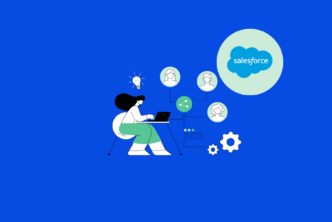The process of hiring a remote software engineer to work on your projects can be difficult, especially if recruitment is not your primary area of expertise. However, it is important for any CTO to be the driving force behind the recruitment process. Otherwise, the person selected for the role may not have the required skills, attitude, or knowledge.
Here we provide some examples of good interview questions to ask a software developer. These questions will focus mainly on remote work. We recommend asking them during a final interview with CTO. This is because they highlight important strengths in potential candidates and also help to weed out those who would not be suitable without wasting too much time.
Note: Of course, there will usually be a much more in-depth and specific section of the interview dedicated to technical questions. However, these general questions can be equally important, so it’s essential not to forget these basic CTO interview questions.
Make sure to create a list of CTO questions for your remote interview which will highlight important strengths in potential candidates for your remote or distributed team.
Table of Contents
1. What tools for collaboration and remote work do you have experience with?
Expected Answer: I have experience with various collaboration tools such as Zoom for video conferencing, Slack for team communication, Trello for project management, and Time Doctor for time tracking. Additionally, I have used tools like GitHub for version control and Miro for virtual whiteboarding.
Explanation: Even if your company uses tools that are other than the candidate’s tools, it’s not a problem – all you need is to make sure that the candidate has the relevant experience. If they can distinguish between the time tracking and project management tools – then it’s a good sign.
1.1 Follow-up Question: Can you describe a time when you had to learn a new tool quickly for a project? How did you manage that?
Expected Answer: When our team switched from Asana to Trello for project management, I quickly familiarized myself with Trello by watching tutorials and experimenting with its features. I also reached out to colleagues who were already proficient with Trello for tips and best practices.
Explanation: This follow-up question is designed to assess the candidate’s ability to swiftly adapt to new tools, an essential skill in a fast-paced, remote work environment where technological tools and platforms frequently evolve. It highlights their resourcefulness, willingness to seek help, and capability to stay productive during transitions.
2. How do you manage conflicts when working remotely? Please describe a situation where you’ve successfully resolved a conflict.
Expected Answer: In a previous role, a conflict arose due to a miscommunication about project deadlines. I initiated a video call with the involved parties to clarify misunderstandings and collaboratively set new, realistic deadlines. This open communication helped resolve the conflict and improved our workflow.
Explanation: Conflict resolution skills are essential in a remote setting where face-to-face communication is limited. This question helps determine if the candidate can handle conflicts professionally and maintain team harmony.
2.1 Follow-up Question: Have you ever faced a situation where a conflict couldn’t be resolved immediately? How did you handle it?
Expected Answer: Yes, once a conflict couldn’t be resolved in a single meeting due to differing opinions. I scheduled follow-up meetings, ensured everyone had a chance to voice their concerns, and proposed a compromise that was acceptable to all parties involved.
Explanation: This follow-up question is intended to assess the candidate’s ability to persistently and effectively manage unresolved conflicts, an essential skill for maintaining long-term team harmony and productivity. It emphasizes the candidate’s approach to conflict resolution, highlighting their commitment to open communication and collaborative problem-solving.
3. Do you use any special techniques or life hacks to stay focused when working remotely?
Expected Answer: When working from home, it is very easy to get distracted, especially when you have a big family. In the office too, but in the office, you have a certain level of “live” supervision and thus cannot afford distractions that are too long. However, no one can see what you’re actually doing at home, and, as spying on remote workers is not allowed, some employees can abuse this “invisibility.”
Explanation: Asking a question about the techniques that the candidate uses to stay focused will help you figure out how serious they are about their work. It will also show you whether they treat their home office as seriously as they would do with a “real” office.
3.1 Follow-up Question: How do you handle unexpected distractions or interruptions during your workday?
Expected Answer: I handle unexpected distractions by communicating with my team if I need to step away briefly and rescheduling my tasks if necessary. I also use apps like Focus@Will to minimize interruptions.
Explanation: Their response will give you insight into their ability to manage their work environment effectively, demonstrating whether they approach their remote workspace with the same level of professionalism and seriousness as they would in a traditional office setting. This also highlights their resourcefulness in using tools and strategies to stay on track despite potential disruptions.
4. What working hours are most comfortable for you?
Expected Answer: I prefer working from 9 AM to 5 PM in my time zone, but I am flexible and can adjust my schedule to accommodate team meetings or collaboration sessions with colleagues in different time zones.
Explanation: Asking about the candidate’s preferred working hours provides valuable insight into their availability for collaboration and team meetings. It helps determine if their schedule aligns with the needs of the team, ensuring there is enough overlap for effective communication and joint work. This question also assesses the candidate’s flexibility, which is essential for navigating the challenges of working with colleagues across different time zones in a remote team environment.
4.1 Follow-up Question: How do you manage work-life balance when your working hours are flexible?
Expected Answer: I set clear boundaries for work and personal time, ensuring that I disconnect from work after my scheduled hours. I also schedule breaks and personal activities to maintain a healthy work-life balance.
Explanation: By understanding how they set boundaries between work and personal time, you can gauge their awareness of the importance of disconnecting from work to avoid burnout. It also reveals their discipline in scheduling breaks and personal activities, which is crucial for sustaining long-term productivity and overall well-being in a remote or flexible work setting.
5. How good are you at written communication?
Expected Answer: According to Wade Foster, founder and CEO of Zapier,
“Most communication in a remote team happens via text—email, team chat, or one-on-one private messages. If someone struggles to write clearly and concisely, they’ll struggle in a remote team.”
Explanation: You have to make sure that your candidate can clearly communicate their thoughts and concerns via writing because not everyone is available for a call 24/7. You can see that already at the pre-screening stage when you chat before the call.
5.1 Follow-up Question: Can you provide an example of a complex issue you resolved through written communication?
Expected Answer: In a previous role, I resolved a technical issue by thoroughly documenting the problem and proposed solutions in a shared document. I facilitated a discussion in our team chat to gather feedback and reach a consensus, which led to a successful resolution.
Explanation: It sheds light on their ability to articulate problems clearly, document solutions effectively, and engage with team members to reach a consensus. These skills are especially important in remote work environments, where clear and detailed written communication is often the primary method for addressing and resolving challenges. The candidate’s response will also reveal their problem-solving approach and their ability to facilitate collaborative solutions through written exchanges.
Browse 500+ Dev Teams Available for Hire
6. Can you work independently and/or with minimum guidance?
Expected Answer: I am comfortable working independently and have experience managing my tasks and projects without constant supervision. I proactively seek out information and resources when needed and keep my team updated on my progress.
Explanation: It is easier to constantly guide and supervise a new employee in a co-located setting than in a distributed one because the entire team is in the same building most of the time. Therefore, being autonomous is a must for any remote team member. At this stage of the interview, you can also ask your candidate how would they solve a particular problem on their own, without having any access to their teammates.
6.1 Follow-up Question: How do you ensure you stay aligned with your team and company goals when working independently?
Expected Answer: I regularly communicate with my team through updates and check-ins, participate in team meetings, and use project management tools to track progress and ensure alignment with company goals.
Explanation: It reveals how they prioritize communication, use tools to track progress, and ensure their work contributes to the broader objectives of the organization. In a remote work environment, where direct supervision is limited, the ability to stay connected and aligned with the team’s goals is crucial for coherence, productivity, and overall success. The candidate’s response will highlight their proactive approach to maintaining this alignment.
7. Do you feel comfortable working with people whose faces you don’t see daily?
Expected Answer: Yes, I am comfortable working remotely and have experience collaborating with colleagues through video calls, chat, and email. I make an effort to build relationships and maintain communication even without face-to-face interactions.
Explanation: Remote work isn’t for everyone. So if the candidate mentions that they feel lonely and isolated while working remotely, they may not be the right fit for your remote team, no matter how good their tech skills are.
7.1 Follow-up Question: How do you foster a sense of team and camaraderie in a remote work setting?
Expected Answer: I participate in virtual team-building activities, regularly check in with colleagues, and contribute to team chats and discussions to foster a sense of camaraderie and team spirit.
Explanation: It provides insight into their initiatives to engage with colleagues, participate in team-building activities, and contribute to a positive and collaborative work culture. In remote settings, where physical interactions are limited, fostering strong team relationships is essential for maintaining morale, communication, and overall productivity.
8. What experience do you have working remotely?
Expected Answer: I have [X] years of experience working remotely in various roles. I have successfully managed projects, communicated with distributed teams, and delivered results while working from home or other remote locations.
Explanation: This is usually essential for the person to succeed in your role. The extent of the individual’s experience is an important thing for you to understand and keep in mind as the open interview questions are asked.
8.1 Follow-up Question: Can you describe a project you completed successfully while working remotely?
Expected Answer: In my previous role, I led a project to develop a new feature for our product. I coordinated with team members across different time zones, managed our project timeline using Trello, and ensured that we met our deadlines and quality standards.
Explanation: It offers insight into their organizational skills, ability to coordinate with team members across different locations, and effectiveness in using tools like Trello to track progress and meet deadlines. The candidate’s response will highlight their experience in leading remote projects, their ability to maintain quality standards, and their overall leadership in ensuring the project’s success despite the challenges of working remotely.
9. How do you manage your daily schedule?
Expected Answer: I use a combination of digital calendars, task management tools like Todoist, and project management software to organize my daily schedule. I prioritize my tasks based on deadlines and importance and review my progress at the end of each day.
Explanation: This question is designed to evaluate the candidate’s time management skills, which are crucial for maintaining productivity in a remote work environment. By understanding how they organize their daily schedule, including the tools they use and their approach to prioritizing tasks, you can gauge their ability to stay on track and meet deadlines. The candidate’s response will reveal their discipline in managing their time independently.
9.1 Follow-up Question: How do you handle competing priorities or urgent tasks that arise unexpectedly?
Expected Answer: I assess the urgency and impact of the new tasks and adjust my schedule accordingly. I communicate any changes to my team and ensure that critical tasks are prioritized without compromising ongoing projects.
Explanation: This follow-up question is designed to assess the candidate’s ability to manage unexpected tasks and competing priorities, which is essential in a dynamic work environment. It provides insight into how they evaluate the urgency and impact of new tasks, adjust their schedule to accommodate them, and communicate these changes with their team. The candidate’s response will demonstrate their flexibility, decision-making skills, and ability to maintain productivity without compromising ongoing projects or missing deadlines.
10. What is your work environment like?
Expected Answer: I have a dedicated home office with a comfortable chair, a large monitor, and all the necessary equipment for my work. I ensure my workspace is quiet and free from distractions to maintain focus and productivity.
Explanation: This will provide an interesting insight into how the candidate goes about their work. You might ask them to describe their home office setup, or if they prefer to work with other people in a shared, co-working office or public space, how they manage the possibility of distractions.
10.1 Follow-up Question: How do you handle distractions or interruptions in your work environment?
Expected Answer: I minimize distractions by setting boundaries with family members, using noise-canceling headphones, and scheduling work periods during quiet times. I also use apps like Focus@Will to stay focused.
Explanation: The response provides insight into the strategies they employ, such as setting boundaries, using tools like noise-canceling headphones, and scheduling work during quieter times. Understanding how the candidate handles potential disruptions helps determine their capacity to stay focused and productive despite the challenges of working from home.
11. How often do you have to prioritize your own tasks?
Expected Answer: I frequently prioritize my tasks based on their deadlines and importance. I use task management tools to keep track of my responsibilities and ensure that I meet my deadlines while managing multiple tasks.
Explanation: In almost all remote work, there will be frequent occasions where the engineer is expected to juggle multiple tasks and deal with different people who all need something done urgently. It’s up to them to take control of the situation and prioritize things effectively, so you need to know how they would go about this.
11.1 Follow-up Question: Can you provide an example of a time when you had to juggle multiple urgent tasks? How did you handle it?
Expected Answer: During a product launch, I had to handle multiple urgent tasks, including finalizing features, coordinating with the marketing team, and fixing last-minute bugs. I prioritized tasks based on their impact on the launch and communicated effectively with my team to ensure everything was completed on time.
Explanation: The response sheds light on their organizational skills, ability to prioritize tasks based on impact, and effectiveness in communicating with their team to ensure timely completion. By understanding how the candidate handles high-pressure situations, you can gauge their capacity to maintain composure and productivity when faced with competing demands, which is vital for remote work success.
12. How do you manage your work-life balance?
Expected Answer: I set clear boundaries between work and personal time, ensuring that I disconnect from work at the end of the day. I also schedule regular breaks and personal activities to maintain a healthy balance and avoid burnout.
Explanation: Depending on people’s personalities, they can react very differently to long periods of remote working. It is inevitable that there will be some downsides, and sometimes working alone with only online communication with colleagues can cause a reduction in productivity. You want to make sure that your candidate is capable of self-managing their personal life with their professional duties to maintain a healthy and stable balance.
12.1 Follow-up Question: How do you handle situations where work demands more time than usual?
Expected Answer: During busy periods, I communicate with my team to set realistic expectations and prioritize my tasks. I also make sure to take breaks and manage my time efficiently to avoid burnout, even when work demands more of my time.
Explanation: This follow-up question evaluates the candidate’s ability to handle increased workloads and maintain their work-life balance, which is important for sustained productivity and well-being.
13. What are the biggest advantages/disadvantages of remote work for you?
Expected Answer: The biggest advantages of remote work for me are the flexibility and the ability to work from anywhere. The main disadvantage is the potential for feeling isolated, but I mitigate this by staying connected with my team through regular video calls and chats.
Explanation: It’s important to understand the person’s perspective on working remotely, so asking them what they consider to be the greatest benefits and the biggest concerns is always good. You will be able to compare different interviewees’ answers to understand their outlooks better and to hire dedicated developers. If the employer and employee share concerns about the same potential problems, these will be easier to manage in the future through collaboration.
13.1 Follow-up Question: How do you stay motivated and engaged while working remotely?
Expected Answer: I stay motivated by setting clear goals, maintaining a structured schedule, and regularly connecting with my team. I also take breaks and engage in activities outside of work to stay energized and focused.
Explanation: This follow-up question assesses the candidate’s ability to stay motivated and engaged, which is crucial for long-term success in a remote work environment.








